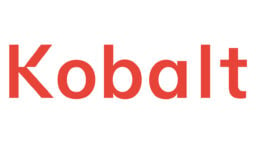Kobalt has launched what it calls the world’s first ‘global, direct, digital mechanical and performing rights society’.
The new CMO is based on the existing operation of AMRA (American Music Rights Association), which Kobalt acquired last year.
Why would a music rights company want to own a CMO?
Because Kobalt has clearly grown disatisfied with the financial inefficiency of existing territorial societies – and senses that many of its peers (and competitors) in the publishing world agree.
The ‘new’ AMRA will leverage Kobalt’s own royalty processing platform, KORE – licensed to AMRA – to provide what it calls ‘fast, efficient royalty distribution with total transparency’.
“The industry can no longer afford to spend $5 collecting $1. The efficiency of AMRA is the future.”
Willard Ahdritz, Kobalt
Its CEO is Tomas Ericsson, a former CFO and Deputy CEO of STIM in Sweden. Ericsson was also MD of ICE (International Copyright Enterprise), the joint venture between STIM and PRS. He joined Kobalt in late 2013 as President for Society Relations.
He is joined by Kenth Muldin, who is named AMRA’s Chairman of the Board. Muldin was previously Chairman of ‘the society for the societies’, CISAC, and was also CEO of STIM for 11 years.
As you’d expect, AMRA will offer two services to clients: (i) licensing of AMRA publisher members’ Anglo-American repertoire to DSPs operating in multiple territories and (ii) collection of writer’s share of public performance monies on behalf of AMRA writer members.
It’s not muscling in on single territory digital music services, however, which it’s leaving to existing territorial CMOs.
By collecting publishing royalties direct from the likes of Spotify and YouTube globally, rather than through numerous collection societies around the world, Kobalt says it will “maximise value for music rights-holders” while “setting new industry standards for efficiency and transparency for clients”.
Willard Ahdritz, founder and CEO of Kobalt (pictured), said, “With AMRA, we are now able to fully execute our original Kobalt vision of trust and technology for creators and rights owners on a global scale.
“AMRA allows us to offer service unlike anything ever seen before in royalty collections. The industry can no longer afford to spend $5 collecting $1 – the efficiency and transparency of AMRA is the future.”
James Fitzherbert-Brockholes, COO of Kobalt said, “AMRA’s unique strategy to license directly to the global multi-territorial DSPs [e.g. Apple, Spotify, YouTube, etc.] is the most efficient way to handle the ‘high volume/low transactional value’ of music repertoire in a streaming world.
“The traditional model of individual licences across 100 local territories for one major dsp does not promote efficiency or economies of scale.”
James Fitzherbert-brockholes, Kobalt
“The traditional model of individual licenses across 100 local territories for one major DSP does not promote transparency, efficiency or economies of scale in today’s digital business.”
Kobalt’s rivals in the world of publishing rights will no doubt be cynical about joining a publisher-owned CMO, but the company has already issued reassurances.
It said in a statement: “Kobalt has devoted substantial resources and effort to enact strict and exacting business separation protocols in order to maintain data integrity and confidentiality for sensitive AMRA data and tools.
“Kobalt and all other AMRA publishers will only be provided access to their specific data and will have no access to any other publisher data, whether or not those publishers are members of AMRA.”
It also promises that AMRA is “fully compliant with and adheres to all CISAC rules and binding resolutions for societies”.
PricewaterhouseCoopers (PWC) was hired to undertake a ‘deep analysis’ of the necessary separation between the Kobalt and AMRA businesses – ‘including but not limited to the confidential tools and information which AMRA as a society has access to but which Kobalt as a publisher must not’.
You can read PWC’s analysis through here.Music Business Worldwide




